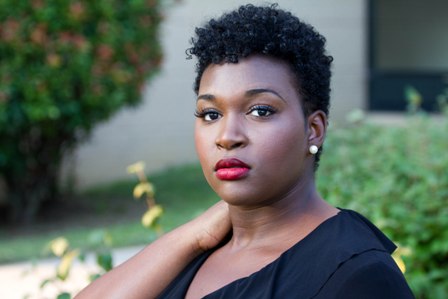Singers shine best in uneven Apollo Orchestra concert

Leah Hawkins performed Strauss’s “Four Last Songs” with the Apollo Orchestra on Sunday.
The Apollo Orchestra is feeling its way into the Washington music scene. Too big for a chamber orchestra and too small (about 54 players) to take its place comfortably as a full symphony orchestra, its programming proclaims symphonic ambitions. Drawing its membership largely from recent conservatory graduates and in close collaboration with the Washington National Opera’s Domingo-Cafritz Young Artists (DCYA) Program, the orchestra opened for business in 2010 under the sponsorship of the Downing Family Foundation and has been offering a full six-concert season of free performances at four local venues including the Kennedy Center’s Terrace Theater.
On Sunday the Apollo Orchestra was at Bethesda’s Church of the Little Flower performing music of Wagner, Richard Strauss and Faure. This is a fairly large sanctuary (seats about 650 people), essentially a large octagon with a high-domed ceiling and nothing much in the way of anything other than the audience itself to absorb sound. Consequently, the orchestra’s full complement of winds dominated the Wagner and Strauss of the first half of the program not always to the music’s benefit.
The Prelude and the “Good Friday Spell” music from Parsifal brought fine brass playing and exceptional wind ensemble to Wagner’s extended halo of serenity and enlightenment. Conductor Stephen Czarkowski set a no-nonsense pace and managed to maintain a sense of direction and shape to this metaphysical scene of religious awakening. What he didn’t manage to do was to get the winds to play quietly enough for the strings to be heard so that there turned out to be a sense more of ceremonial grandeur than of spiritual awakening.
Balances were also off in Strauss’s Four Last Songs. Certainly the foibles of the acoustics and a relatively small string section made balance difficult, but wind players should be able to play more quietly than these did.
Soprano Leah Hawkins, a DCYA member, was the soloist. With a generous, rich voice, as strong on the bottom as it is on top, she soared easily over the orchestra in big moments only to be buried by the winds in quieter phrases. In “September,” where the soloist sings of the fading of summer, Hawkins had a chance to sing softly with a quiet string accompaniment and she floated through the passage beautifully.
The Faure Requiem filled the second half of the program in a performance Czarkowski and the musicians dedicated to children killed in school shootings. For this chamber version of the work, the orchestra was joined by combined choirs from Little Flower, Saint Bartholomew, Saint Louis and Annunciation parishes, about fifty singers in all.
The performance was heartfelt and assured. The soloists here, also DCYA members, were, soprano Madison Leonard and baritone Michael Hewitt both of whom sang with bright, light production and excellent diction. Hewitt entrance on “Hostias,” which should ideally sound disembodied, was a little too present and both singers could have sung more “on the breath” to sound really French in this most French of all Requiems. Still, they provided unfailing freshness and youthful commitment.
